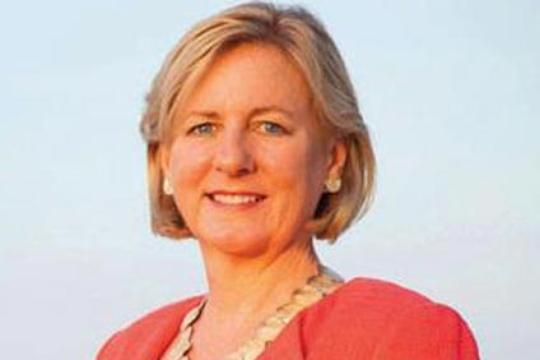
The Huffington Post published Nancy E. Soderberg’s recent article on the influence of the United States on South Caucasus and the importance of the Armenia-Azerbaijan conflict resolution for America.
Nancy E. Soderberg is the former U.S. Ambassador to the United nations.
Read the full article below:
Recent unrest in the Middle East highlights the importance of our strategic relationships in the region. A steadfast ally of the United States is Azerbaijan, and the United States must redouble its efforts to promote peace in this critical but unstable South Caucasus region.
Bordered by both Iran and Russia, Azerbaijan has offered close logistical cooperation to our military commanders in Afghanistan. For instance, over-flight clearance from the Azerbaijan government alone reduces our Air Mobility Command medical evacuation flight times by nearly two hours, saving lives. Of course, this doesn’t endear Azerbaijan to its neighbor Iran, nor does its reliable support for Israel. Peace in this region is essential for regional energy security, especially for Europe. Azerbaijan itself provides about a million barrels of oil a day to the world market, including more than 40 percent of Israel’s oil.
But several factors threaten stability. Since the collapse of the Soviet Union, Azerbaijan has been locked in a bitter dispute with neighboring Armenia over the Nagorno-Karabakh territory. In the 1992-1994 conflict, ethnic Armenian forces took control of the area, along with considerable Azeri territory before a shaky peace took effect in 1994. Azerbaijan insists that the region is part of its territory, a position shared by the United Nations; Armenia argues that the Armenian majority living in Nagorno-Karabakh has the right to self-determination and independence.
Peace talks remain deadlocked and the two sides are in the midst of a major arms race, with clashes along the front lines having killed over 3,000 since the 1994 ceasefire. Threats by Azerbaijan to use military force against Armenia’s occupying forces endanger the stability of the entire South Caucasus region. The longer this conflict drags on, the greater the insecurity of the South Caucasus region and the greater the chance of violence erupting and dragging in other players like Russia and Iran.
A tragic consequence of the failure to reach peace has been the displacement of more than 1.5 million Azeris and Armenians since the conflict erupted. To date, internally displaced peoples account for seven percent of the population of Azerbaijan — one of the highest rates in the world. Moreover, according to the International Crisis Group, there are 128,000 IDPs and permanent residents living in close proximity to the 180km-long line of contact established by the 1994 ceasefire. They live on the edge of peril with gunfire, contaminated water and landmines surrounding them.
Tensions between Armenia and Azerbaijan recently boiled over when Azerbaijan released a recently extradited army officer Ramil Safarov who had served eight years in a Hungarian prison for the brutal murder of an Armenian. The crime was inexcusable to be sure, and there has been widespread criticism of Azerbaijan’s decision to release Safarov after his return to Baku. But rather than letting the Safarov affair further derail the peace process, the international community must use the crisis to renew its commitment to the peace process.
For its part the United States, as a co-chair with Russia and France of the Minsk Group, must lead in the search for peace. Russia is hardly objective as it views Azerbaijan as a competitor to Russia’s state-controlled oil and gas industry.
In my own experience working for President Clinton on the Irish peace accords, we saw leaders in both countries overcome political pressure from their national populations to work together to forge a compromise. The South Caucuses region deserves the same.
The northern Irish political leader Gerry Adams once said, “Making peace, I have found, is much harder than making war.” No doubt this maxim holds true for the decades old and seemingly intractable dispute between Azerbaijan and Armenia.
It is time to put aside the mentality on both sides that a peace deal equates surrender and restart the peace process. Previous efforts came close to a deal — with Basic Principles on international security guarantees including peacekeepers; return of occupied Azerbaijani territories; a land corridor between Armenia and Nagorno-Karabakh; the right to return for all displaced people; an interim status for Nagorno-Karabakh; and determination of final status by a legally binding expression of will. According to the International Crisis Group, “President Aliyev publicly stated that he largely accepted the basic principles… in February 2010, while President Sargsyan remained noncommittal.”
Getting back to the peace table is difficult and both sides must do more to prepare their public for progress and renew the search for peace. But it will require strong U.S. leadership for success. In this time of uncertainty and unrest, stability in the South Caucuses is vital to American security.




































